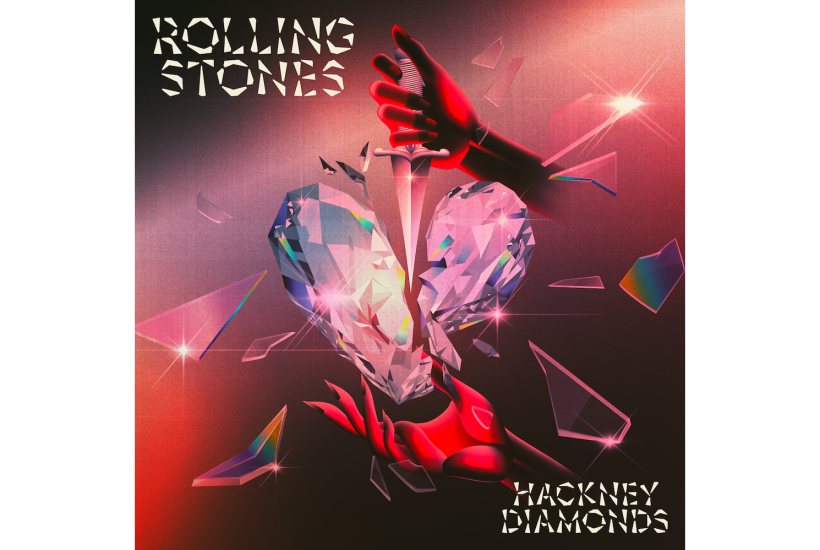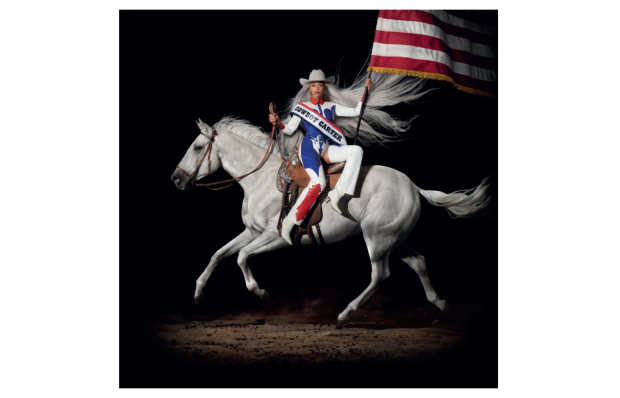The new Rolling Stones single, supposedly their best in many a decade, is called ‘Angry’. And while on the surface it seems to be about the millionth anguished plea from Mick Jagger to some unseen woman to give him a shag, it reportedly stems from Mick’s mystification as to why everybody is angry these days. I suppose he is forgetting that youth has always been in a more or less perpetual state of pre-rational, pettish fury – a fury which, back in the day Mick was canny enough to take advantage of. You may remember his incandescence at being unable to attain any satisfaction, for example, or at the unwanted ingression of an unidentified person on to the cloud he was occupying. Indeed, 30-odd years ago, Private Eye ran a spoof news article about the Rolling Stones, referring to their groundbreaking hits ‘I Wanna Jerk Off The Whole Bloody World’ and ‘Hullo Mr Freakout Devil Man’– which isn’t a bad summation of their 1960s state of mind and playing to a receptive gallery.
The single comes from their first album of new material in almost two decades, Hackney Diamonds, which is due to be released next month and has already been the recipient of a rather breathless review in the Times, where Will Hodgkinson described it as their best set of songs since the 1970s. Well sure – but that’s setting a terribly low bar. The rest of us have heard only ‘Angry’, which is the same kind of mildly pleasant, uninspired 1980s hard rock they’ve been doing since, well, 1980: what it lacks utterly is that sumptuous, beguiling swing, which the Stones had when they played the same riff over and over, smacked out of their heads, until suddenly a kind of magic emerged from the mix and Glyn Johns was summoned to press ‘record’ at last.
I would argue too that they have not been helped these past 40 years by their choice of guitarist to counterpoint Keef’s marvellous array of open tuned, often strangely delicate, riffs. They jettisoned the wonderful Mick Taylor – a somewhat sulky customer to deal with, apparently – in favour of Ronnie Wood, with his bottomless sack of meat and potatoes. Ronnie would have been better off in Bad Company. But in any case, jamming for 24 hours before giving Anita Pallenberg one and then running away from the filth is not becoming in septuagenarians. The miracle, of course, is that they have made a new album at all.
Where do they stand, in the pantheon of that dying, if not dead, old behemoth, rock music? Comparisons with the Beatles today seem a little otiose, although they still occur, of course. Paul McCartney, rather spitefully, recently described the Stones as a ‘blues covers band’, which piqued Jagger even if he did manage a laugh when told about it. But there is a certain truth to McCartney’s observation – it is, after all, how the Stones began and how Jagger himself often described the band (although he missed out the word ‘covers’).
The Stones did not define a new era in pop music, as the Beatles had done, still less a new decade and a new country. Neither Mick nor Keith have anywhere near the melodic imagination of McCartney and possibly not even Lennon, nor was their appetite for experimentation, of driving towards new frontiers, as broad or as deep as Lennon and McCartney’s. From their early records all we have is their, uh, acquired authenticity and their naughtiness, and one or two good pop songs.
Where, however, they easily surpassed those Liverpudlians was in annexing both black music and country music as their own. No matter how avid the Beatles were about Motown (on Rubber Soul, for example), their attempts at replication came close to pastiche – and this was even more so the case with country music (‘Rocky Raccoon’, anyone?). The Beatles were defiantly British, whereas the Stones were wannabe Americans and wannabe’d so much that it came off: ‘Under My Thumb’ could have been released on Motown and ‘Miss You’ could have been Philly soul. They were even more convincing with country music and country blues – Sticky Fingers is almost, almost, a country album – and they could turn their hands to reggae: compare, if you will, ‘Ob-La-Di, Ob-La-Da’ with the sublime ‘Luxury’ from that underrated album It’s Only Rock’n’Roll. Jagger was also a sharper lyricist, when he could be arsed, than either Lennon or McCartney. He had an ease with the vernacular.
The truth is that the Beatles were a pop band and the Rolling Stones a rock band, better than any this country has produced – even if the Who were sometimes more powerful and the Kinks cleverer. That’s not a bad legacy to look back on, is it Mick?
Got something to add? Join the discussion and comment below.
Get 10 issues for just $10
Subscribe to The Spectator Australia today for the next 10 magazine issues, plus full online access, for just $10.
You might disagree with half of it, but you’ll enjoy reading all of it. Try your first month for free, then just $2 a week for the remainder of your first year.















Comments
Don't miss out
Join the conversation with other Spectator Australia readers. Subscribe to leave a comment.
SUBSCRIBEAlready a subscriber? Log in